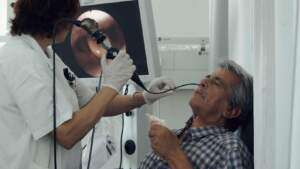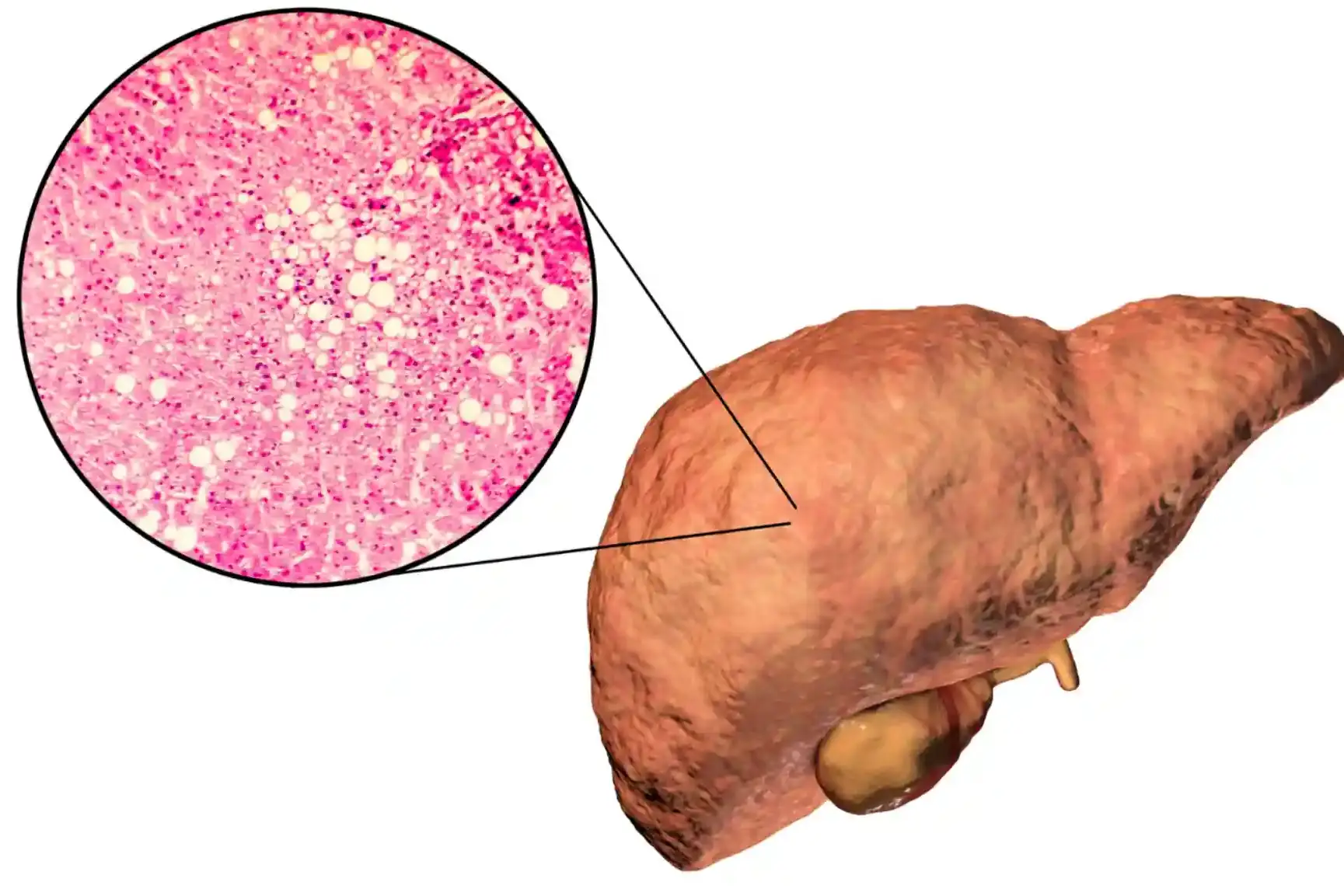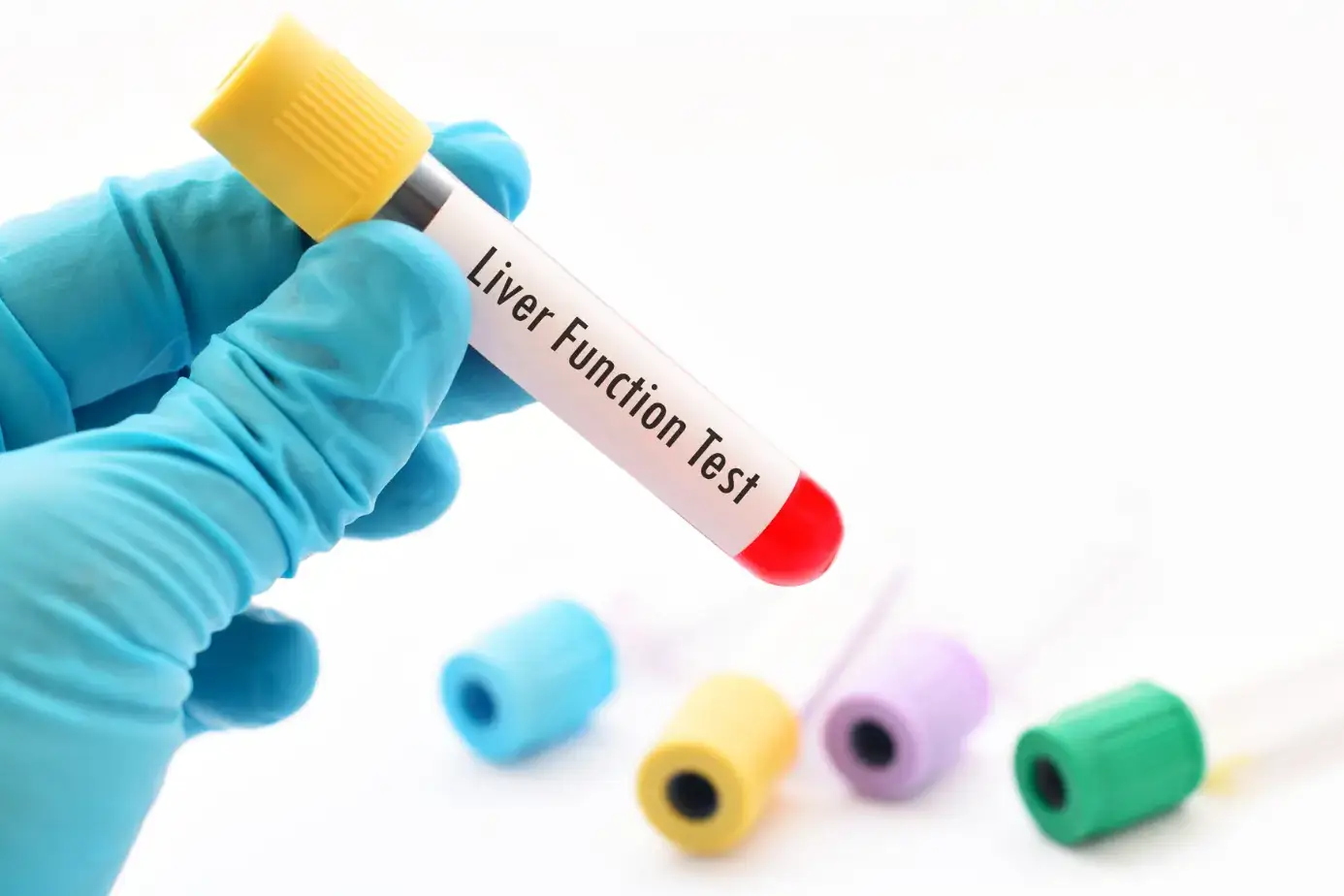Esophageal varices are big veins in the esophagus that might bleed, which is very dangerous. The main aim of esophageal varices treatments is to stop bleeding and to handle any sudden bleedings. Both medicines and surgeries can be used for treatments.
Table of Contents
ToggleDoctors use drugs and tie the bleeding veins with bands for esophageal varices. They might also do surgeries like putting a TIPS to change blood flow. Or use a balloon to put pressure or do a liver transplant for a very sick liver. It’s important to stop bleeding again and handle any sudden bleeding.
Learning about the treatments for esophageal varices can help you and your doctor create a good plan. This way, you can manage this problem well.
Understanding Esophageal Varices
Esophageal varices are large veins in the esophagus. They’re above the stomach and caused by high blood pressure. This problem happens in the liver’s blood vessels. When these veins get big and thin, they might break and cause serious bleeding.
What are Esophageal Varices?
Esophageal varices are large veins in the esophagus. They form because of high blood pressure in the liver’s veins. This pressure damages the veins, making them likely to burst and bleed.
Causes of Esophageal Varices
Most often, liver cirrhosis causes esophageal varices. Cirrhosis is where liver tissue scars, blocking blood flow and building pressure. Less common reasons include blood clots, spleen enlargement, heart problems, and liver infections.
Esophageal Varices Symptoms
Esophageal varices symptoms don’t show until they bleed. At first, there’s often nothing to notice. But, when bleeding starts, it can cause vomiting blood, dark stools, weakness, and very bad bleeding. These signs mean you need to see a doctor right away.
Diagnosis of Esophageal Varices
It’s very important to diagnose esophageal varices right. This helps in treating and avoiding serious risks. The main way doctors check is through an upper endoscopy.
Upper Endoscopy

A thin tube with a small camera goes down the throat during an endoscopy. It looks at the esophagus, stomach, and parts of the intestines. The doctor can see the varices clearly. They check how big they are, what they look like, and if they might bleed. This helps them decide the best way to treat the enlarged veins.
Imaging Tests
If needed, more tests may be done after the endoscopy to learn more. These tests might include a CT scan of the stomach area or an ultrasound of the blood vessels near the liver. They show if varices are there, how bad they are, and other possible problems like liver scarring. These tests help doctors understand the condition better.
Medical Treatment for Esophageal Varices
Doctors use certain medications to treat esophageal varices. These medicines lower the pressure in the portal vein. Beta blocker drugs like propranolol (Inderal) and nadolol (Corgard) are popular. They reduce blood flow into the portal system. This helps lower the risk of variceal bleeding.
Medications to Reduce Portal Vein Pressure
Beta blocker drugs, for example, propranolol and nadolol, decrease blood pressure in the portal vein. By reducing blood into the portal system, these drugs lower the risk of severe bleeding. This is key in managing esophageal varices.
Endoscopic Band Ligation
Endoscopic band ligation is a procedure where a doctor places small rubber bands around varices. It stops the varices from bleeding. This treatment is for patients at high risk of bleeding. Or, they may have had bleeding events before.
Surgical Treatment Options
Transjugular Intrahepatic Portosystemic Shunt (TIPS)
If medical solutions don’t work or bleeding does not stop, surgery might be the next step. A procedure called transjugular intrahepatic portosystemic shunt (TIPS) could help. TIPS creates a new path for blood. It goes from the portal vein to the hepatic vein, skipping the liver. This action lowers pressure in the portal system. It stops bleeding from esophageal varices.
Balloon Tamponade
In dire emergencies, when treatments fail, a balloon tamponade can help. This procedure puts a balloon in the esophagus to press on varices and stop bleeding. It’s a quick, temporary fix. It buys time until long-term treatments can be done.
Liver Transplantation
If liver issues are severe and variceal bleeding keeps coming back, a liver transplant might be needed. A transplant replaces a sick liver with a healthy one. This can fix the main problems causing high blood pressure and bleeding in the esophagus. But, finding a suitable donor liver is often a big challenge.
esophageal varices treatment
Preventing Rebleeding
After you first bleed from esophageal varices, the chance of bleeding again is high. Doctors use beta blockers and may do more endoscopic band ligation to stop this. These steps help keep the varices small and lower the risk of bleeding again.
Experimental Therapies
Some new treatments are being looked at for esophageal varices. One option is to spray adhesive powder to stop the bleeding. Another idea is to use metal stents to put pressure on the varices. However, these methods are still being tested and not available everywhere.
Managing Acute Variceal Bleeding
When esophageal varices start to bleed, quick treatment is key. The first step is usually an urgent endoscopy. In this procedure, doctors might use bands to stop the bleed. They could also inject drugs into the veins to shrink them.
Endoscopic Treatment
Endoscopic care is vital in stopping variceal bleeds. Research shows that using ligation and sclerotherapy with somatostatin works well. Villanueva C et al. found in 2006 that both methods are good for urgent variceal bleeding care.
Medication to Slow Blood Flow
Besides endoscopic care, drugs help slow blood flow. Octreotide and vasopressin can lower the blood pressure in the portal system. A study in 2010 by Muntaner L et al. showed that using beta-blockers and stopping alcohol can help patients do better long-term after a bleed.
Blood Transfusions and Clotting Factors
People with severe bleeding might need blood and clotting factors. This helps the blood stop the bleed. Using antibiotics can prevent infections. A 2008 study by Abraldes JG et al. looked at the use of venous pressure as a way to predict how patients will do after treatment.

Treating acute variceal bleeds involves many steps. Doctors use endoscopy, medicine, and supportive care to stop the bleed and help the patient recover.
Preparing for Your Appointment
When you’re getting ready for a checkup about esophageal varices, follow some important steps. Start by noting any unusual symptoms, like throwing up blood or having dark stools. Also, jot down your medical history and the medicines you take.
What You Can Do
Bringing a relative or friend along is a good idea. They can help remember what the doctor says. They can also write down important notes for you. This support is crucial for understanding your health and treatment plan better.
Questions to Ask Your Doctor
Make a list of questions to ask your doctor during your visit. Find out what’s causing your symptoms. Ask about the tests you might need and the treatment plan.
Also, learn about the medicine side effects. Ask how to stop varices from bleeding again. And, don’t forget to inquire about new rules for your diet, lifestyle, or what you can do day-to-day.
Being active in your healthcare is important. Your preparation ensures you know what your condition is and what to do next after your visit.
Risk Factors and Prevention
People at risk for esophageal varices, like those with cirrhosis or long-term liver issues, can do things to lower their risk. This includes changing their daily habits to stop or slow down the growth of these dangerous veins in the esophagus.
Lifestyle Changes
Staying away from alcohol, staying fit, and eating well are key changes to make. Drinking too much is a big reason why these veins might bleed, so not drinking alcohol is very important. Being at a healthy weight can ease the pressure on your liver, lessening the chance of liver disease and esophageal varices.
Regular Screening
Doctors advise getting regular endoscopies for people with cirrhosis or other related health issues. How often you need these checks depends on your condition and if you have varices already. Finding and treating varices early is crucial to avoid severe bleeding episodes.
Living with Esophageal Varices
If you have esophageal varices, it’s important to get regularly checked by a doctor. You might need to have endoscopies often. You should take medicine to lower the pressure in your veins and follow your doctor’s advice on what to eat and how to live.
If you see any signs of bleeding, you must get medical help right away. Proper care and sticking to your treatment plan can help you have a good life even with varices.
Your doctor will want to check the varices often to see if they’re getting worse. They might give you medicines called beta blockers. These help lower the chances of the varices bleeding.
Aside from medicine, changing some things in your life can also be important. Don’t drink alcohol, keep a healthy weight, and eat right as your doctor tells you. Being active in your treatment and telling your doctor about any new symptoms is key to managing esophageal varices well.
Conclusion
Esophageal varices are a big issue with portal hypertension, often from liver cirrhosis. The main goal is to stop the dangerous problem of variceal bleeding. You can treat this with medicines, endoscopic methods, and surgery like TIPS or liver transplants.
You need to keep an eye on it, change your lifestyle, and get help quickly if you start bleeding. If you work closely with your health team and follow your treatment plan, you can keep things under control. This helps lower the chance of bad outcomes.
Finding it early and managing it quickly are very important. Keep in touch with your doctors and focus on staying healthy. With the right help, many people with esophageal varices can live fully active lives.
FAQ
What are esophageal varices?
Esophageal varices are enlarged veins in the esophagus. They are just above the stomach. These veins are caused by high blood pressure in a vein system leading to the liver. This is known as portal hypertension.
What causes esophageal varices?
The top cause is liver cirrhosis. Other reasons can be blood clots, spleen enlargement, heart issues, and liver infections.
What are the symptoms of esophageal varices?
Usually, there are no symptoms until varices start to bleed. Then, you might see blood in vomit or have black stools. You could also feel weak or have serious bleeding, which is very dangerous.
How are esophageal varices diagnosed?
Doctors mainly use an upper endoscopy to diagnose varices. They might also do CT scans or ultrasounds to check for them.
What are the medical treatments for esophageal varices?
Doctors can give medicines like beta blockers to reduce pressure. They also use band ligation, where they tie off bleeding veins.
What are the surgical treatment options for esophageal varices?
Surgery might include a TIPS to change blood flow, or applying pressure with a balloon. In severe cases, a liver transplant can be an option.
How can rebleeding of esophageal varices be prevented?
After bleeding stops, you might get beta blockers. Doctors may also do band ligation again. These steps reduce the chance of bleeding again.
How is acute variceal bleeding managed?
Banding the varices or injecting medicine is done urgently. This helps stop the bleeding. Using medications and blood transfusions is common too.
What should I do to prepare for an appointment to evaluate esophageal varices?
Write down your symptoms and health history. Bring your medicines. Have someone come with you. Be ready to talk with your doctor about your diagnosis, treatment, and how to avoid a re-occurrence.
How can I prevent the development of esophageal varices?
If you’re at risk, avoid alcohol, keep a healthy weight, and eat well. Also, have regular screenings for early detection and care.
About The Author

Medically reviewed by Dr. Nivedita Pandey, MD, DM (Gastroenterology)
Senior Gastroenterologist & Hepatologist
Dr. Nivedita Pandey is a U.S.-trained gastroenterologist and hepatologist with extensive experience in diagnosing and treating liver diseases and gastrointestinal disorders. She specializes in liver enzyme abnormalities, fatty liver disease, hepatitis, cirrhosis, and digestive health.
All content is reviewed for medical accuracy and aligned with current clinical guidelines.
About Author | Instagram | Linkedin





